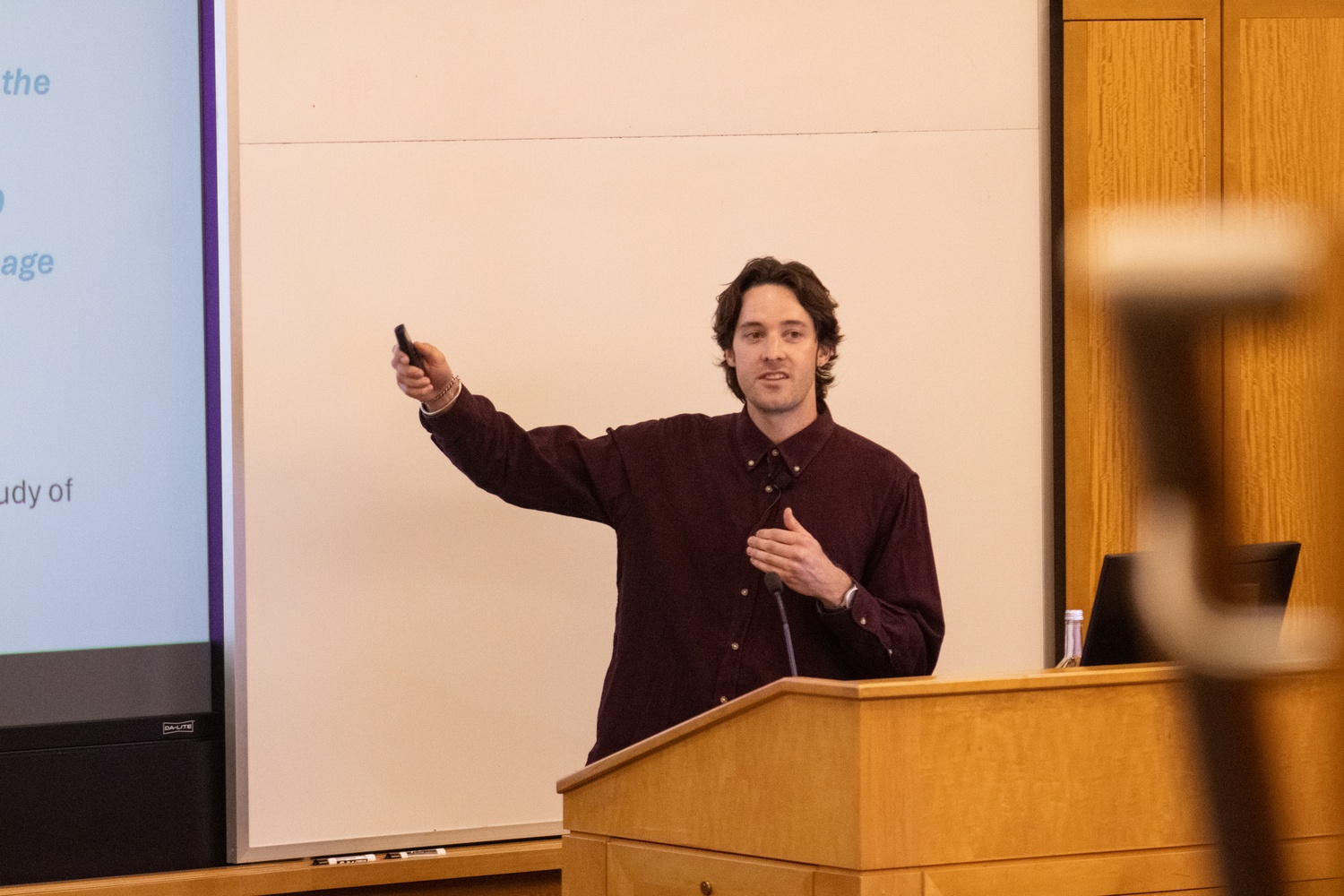
News
Summers Will Not Finish Semester of Teaching as Harvard Investigates Epstein Ties

News
Harvard College Students Report Favoring Divestment from Israel in HUA Survey

News
‘He Should Resign’: Harvard Undergrads Take Hard Line Against Summers Over Epstein Scandal

News
Harvard To Launch New Investigation Into Epstein’s Ties to Summers, Other University Affiliates

News
Harvard Students To Vote on Divestment From Israel in Inaugural HUA Election Survey
HUDS Talk Emphasizes Importance of Communal Dining for Students

Harvard Kennedy School PhD candidate Micah Kaats said that sharing meals with others correlates to higher levels of happiness at a Harvard University Dining Services’ Food Literacy Project event on Wednesday.
The talk comes as HUDS has taken steps to encourage students to dine in the University’s dining halls rather than alone. In August, the department announced it would no longer provide disposable to-go containers, a move intended to foster greater social interaction among students.
The event is a part of a new series launched by HUDS this fall to educate students and Cambridge residents about sustainability, nutrition, and preparation. The initiative hosts a guest speaker every other week to discuss a range of research and experience related to food systems.
Kaats warned that eating meals alone could have adverse effects beyond mental wellbeing.
“Lack of social connection actually is associated with as of a negative health risk as smoking 15 cigarettes a day,” he said, citing the United States General Surgeon’s 2023 Report on the loneliness epidemic.
Members of the Office of Housing and Residential Life — including Senior Assistant Dean of Residential Life and First-Year Students Nekesa C. Straker — were in attendance at the event where the findings from a University-wide survey released last month, which reported that 45 percent of students felt isolated on campus, were addressed.
In response to a question on how universities could better encourage students dining together, Kaats said that American schools should institute stricter cultural expectations that prioritize eating meals communally. He cited that it is customary for workers to eat lunch together in Denmark.
But when referring to a graph that showed a slight decline in happiness when high numbers of meals were shared per week, Kaats acknowledged that the correlation between happiness and meals were not perfect.
“Being with others is important, but alone time is a little bit important as well,” he said.
He also argued that though there was a correlation between money and well-being, income can only go so far in enhancing someone’s happiness.
“If economic growth is producing diminishing marginal returns in terms of well-being, then maybe we should try to look elsewhere in terms of how to try to improve the well-being of citizens and societies,” he said.
During the event, Kaats used meal sharing data in several countries to show how social capital and connections vary in different cultures. According to a global map on meal sharing, Kaats said Senegal was at the top of the list while India, Bangladesh, and Estonia rounded out the bottom. The only English speaking country in the top 10 was Iceland, and the U.S. was in the middle at 69th.
Program attendees said that the global data that Kaats presented was particularly striking.
“I was quite surprised by some of the findings, like, more specifically, that sharing meals is not very common in East Asia and South Asia,” said Michelle Jane ’26.
The talk was followed by a group meal with Kaats and Dean of Students Thomas G. Dunne, who did not attend the talk, in Annenberg Hall.
Want to keep up with breaking news? Subscribe to our email newsletter.
